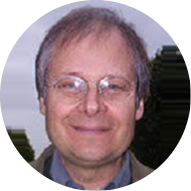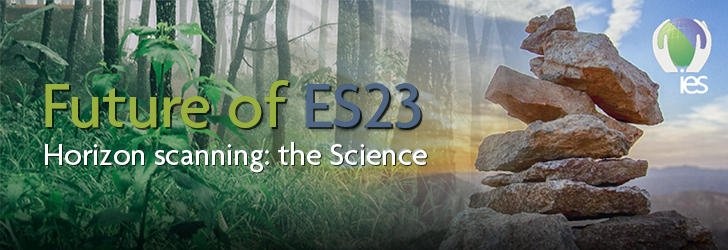Emerging science and expanding frontiers of knowledge will shape the work of environmental scientists and their place in the world.
Environmental science and the scientific process play a fundamental role in the way society develops and responds to change. The future will be influenced by emerging science, research and development, and the relationship between science and society. In that context this discussion will reflect on the ways that environmental science is changing, particularly in response to emerging knowledge and changes in the environment.
This interactive event is the second of our horizon scanning discussions for the Future of ES23 foresight project, which will bring together all the discussions on the future of science from throughout our second theme. The scene will be set by a panel of experts presenting on foresight, emerging science in the context of groundwater, and the future of environmental science education.
Attendees will have a chance to feed in their views during a group horizon scanning exercise, as well as to ask questions of the expert panel.
Agenda
- Introduction (13.30 - 13.40)
- Panel presentations on the future of environmental science (13.40 - 14.20)
- Breakout discussions for participants (14.20 - 14.50)
- Plenary (14.50 - 15.05)
- Panel Q&A and discussion (15.05 - 15.25)
- Outro (15.25 - 15.30)
Speakers
Gary Kass, Principal Specialist in Strategic Science at Natural England
 Gary Kass is an environmental and sustainability scientist and knowledge broker, with over 35 years’ practice, working at the interface of science and policy. Gary joined the public sector in 1995 as Head of the Environment and Energy programme at the Parliamentary Office of Science and Technology and became Head of Public Engagement with Science and Technology within the UK Government. Gary joined Natural England in 2007, served as Deputy Chief Scientist between 2014 and 2022, and is now Principal Specialist in Strategic Science.
Gary Kass is an environmental and sustainability scientist and knowledge broker, with over 35 years’ practice, working at the interface of science and policy. Gary joined the public sector in 1995 as Head of the Environment and Energy programme at the Parliamentary Office of Science and Technology and became Head of Public Engagement with Science and Technology within the UK Government. Gary joined Natural England in 2007, served as Deputy Chief Scientist between 2014 and 2022, and is now Principal Specialist in Strategic Science.
Gary’s roots in academia include serving on the Natural Environment Research Council’s Innovation Advisory Board and the Research Excellence Framework (REF), where he was a member of the Geography and Environmental Studies sub-panel in 2014 and 2021, with a particular focus on impact and policy relevance. Gary is a Visiting Professor at the Centre for Environment and Sustainability at the University of Surrey and held a Fellowship at the University of Cambridge Centre for Science and Policy.
Gary was Chair and is now a Vice-President of the Institution of Environmental Sciences and Fellow of the Royal Geographical Society.
Naomi Holmes, Associate Professor of Geography and Environmental Education at Sheffield Hallam University
 Naomi Holmes is currently Associate Professor of Geography and Environmental Education at Sheffield Hallam University where she teaches into environmental science and geography undergraduate courses. Her research focuses on pedagogies in geography and environmental higher education, outdoor learning, accessibility of science and environmental change.
Naomi Holmes is currently Associate Professor of Geography and Environmental Education at Sheffield Hallam University where she teaches into environmental science and geography undergraduate courses. Her research focuses on pedagogies in geography and environmental higher education, outdoor learning, accessibility of science and environmental change.
As well as being an academic, Naomi is an outdoor learning practitioner and has successfully integrated applied outdoor learning opportunities into her teaching.
Naomi is a member of the Committee for the Community for Environmental Disciplines in Higher Education (CEDHE).
John Tellam, Professor of Hydrogeology at the University of Birmingham
 John Tellam is Professor of Hydrogeology at the University of Birmingham. He has over 40 years of research and teaching experience, and for many years has run the University’s MSc course in Hydrogeology (groundwater science and engineering).
John Tellam is Professor of Hydrogeology at the University of Birmingham. He has over 40 years of research and teaching experience, and for many years has run the University’s MSc course in Hydrogeology (groundwater science and engineering).
His research interests have included the relationships between regional groundwater chemistry and groundwater flow, wetland systems, urban groundwater, and inorganic, surface-interacting, solute and nanoparticle movement in sandstone sequences.
He has supervised around 50 research students, and served on various advisory committees, including for UNESCO, the Geological Society of London, the UK Groundwater Forum, and recently UKGEOS – the UK’s geoenergy observatories programme.
This event has been organised as part of the IES's Future of ES23 horizon scanning & foresight project.


